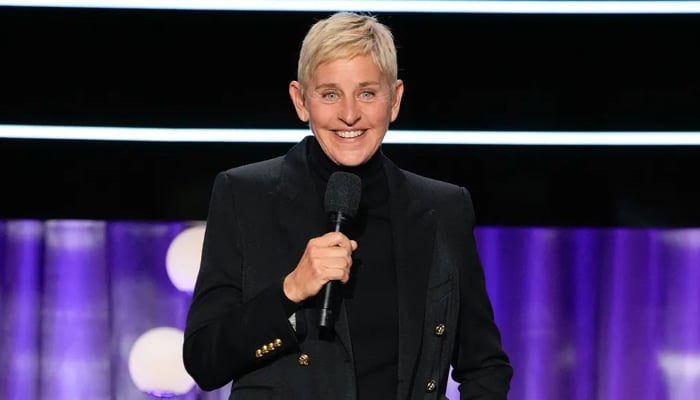Manasa Sharma, who began her film career as a writer and associate director in the OTT space, recently made her directorial debut with the SonyLiv original series Bench Life, which released on September 12. Produced by Niharika Konidela under Pink Elephant Pictures, the show follows a bunch of software employees who are deliberately part of the Bench team, in their aim for other discreet pursuits, both personal and professional. Manasa talks to CE about the origins of the show, using her personal life experiences while writing fictional stories, her future filmmaking aspirations, among other subjects.
SonyLiv wanted to make a series that’s based on the IT industry, so they approached Pink Elephant Pictures, with whom we had made Oka Chinna Family Story (OCFS) earlier. Apparently, they mentioned it would be nice if the OCFS team worked on this. Earlier, we thought of other ideas that had more technical details about the software industry, but then we decided to conceive a show that caters to people from all walks of life, instead of being completely technical.

So we took the concept of Bench Team as the situation of the people there, and once you go beyond the first 15 minutes, you will move past the core concept of software industry and end up following the characters. We were conscious that we don’t want to constrain ourselves to just the IT niche. Also, we wanted to introduce the concept in a fun way, not a preachy way.
That’s why we added that intro scene and that character (played by Venkatesh). It shouldn’t be like we are striving to explain the concept; it should be organic and blend well with the story. I think we cracked it; atleast the makers were happy with the way it turned out.
The character of Meenakshi, the aspiring filmmaker, and her endeavours seemed pretty autobiographical...
Meenakshi is quite autobiographical. Even my full name is Meenakshi Manasa Sharma; that’s quite narcissistic, I guess (laughs). The mother’s character, too, is an inspiration from my own.
She too would keep texting me, asking where I was, asking for video call. Even the grandma character in OCFS was based on my own grandmother. So, 90 per cent of Meenakshi is, you can say, autobiographical.
It was quite challenging, initially. I was doing Madhouse, my first project, without my parents’ knowledge. I was a writer there, as well as a second-unit director.
There was a big argument at my home, so I practically ran away to Hyderabad. This was around 2018. Later, I assured them that I am preparing for civil service exams, but I was working on Madhouse.
The struggle continued for a few years, even till I was working on OCFS. Once OCFS became a hit, and people started calling my family, congratulating them, that’s when they came to terms with it. Working with Rajendra gaaru was a lot of fun.
I was always sure about getting him for this role, and thankfully, he really connected to the character. Also, he never treated me like a first-time director. Between takes, he would keep sharing many stories and experiences from his earlier films.
I remember, after performing one emotional scene, Rajendra gaaru came to me and told me, “I am delighted with this scene. After Aa Naluguru (2004), this was the first scene that gave me the satisfaction of doing a project.” It was such a huge compliment coming from him.
Our journey with Pink Elephant has been quite adventurous. The first show we did together—Madhouse—is a YouTube series, and not in collaboration with any OTT platform. And now, Bench Life is the biggest of the three projects.
We grew step by step. Niharika gaaru never compromises on the projects. Even though Madhouse was a risky project for her, she gave us the best.
Pink Elephant Pictures always tries to maintain that quality and get us senior technicians on board. Like for Bench Life, we have a senior editor like Prawin Pudi in the team. Also, Niharika gaaru is an excellent crisis manager.
I remember, when we were stuck on a certain aspect in Bench Life with the SonyLiv team, Niharika immediately came up with an easy solution. As a beginner, it’s always better to start with smaller stories and lower budgets. So we were forced to write dramas and comedies, in a way.
We weren’t sure we could pull off comedy, but Oka Chinna Family Story gave us confidence. Right now, Mahesh Uppala and I are working on two films, which are action-packed. One is under production, and being directed by Mahesh (who had also directed Oka Chinna Family Story).
I will direct the other film. As a maker, I lean towards two things: action and emotion. However, it works only if we have the right blend of both.
I can’t take the risk of basing a film fully on action, like in Hollywood. Maybe it could work, but as a creator, I would feel safer if it has a proper story or emotional layer to it. Creatively, there is no big difference in writing for the two mediums.
We try to maintain the same standard of work or have similar technicians, and aim for quality output. Maybe there is that slight mental struggle of how to get that theatrical experience value, maybe add little elements that you are sure will work in theatres. Any given day, theatrical experience is what we root for.
At least in Telugu cinema, the euphoria we have for a new release—nothing else can beat it, speaking purely as an audience. However, from a filmmaker’s perspective, OTT has changed the scenario. Most of the films are now backed by OTT platforms before release, so producers are safe, which in turn keeps the writing community safer, leaving us with more opportunities.
.




















